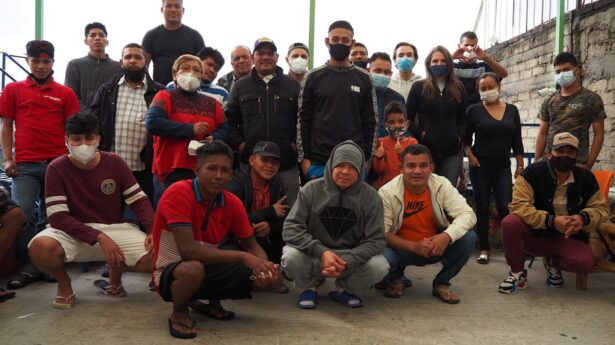The Unitarian Universalist Service Committee advances human rights through grassroots collaborations.
UUSC’s New Impact and Accountability Framework: A Commitment to Human Rights and Social Justice

By Deanna Johnson on December 6, 2023
In the New Year, UUSC will be advancing its commitment to human rights and social justice with a new Impact and Accountability Framework. This comprehensive framework will not only reinforce UUSC’s commitment to upholding human rights and social justice, but will also amplify our dedication to transparency, accountability, and partner-centered work.
Our mission: UUSC advances human rights and social justice around the world, partnering with those who confront unjust power structures and mobilizing to challenge oppressive policies. Our work is grounded in the belief that all people have inherent power and dignity.
The Impact and Accountability Framework will serve as a roadmap for UUSC to ensure that our programs, policies, and practices are successful; he framework will help UUSC ensure that we are doing what we say we are doing.
What Does it Look Like?
UUSC developed the new Framework in collaboration with each of UUSC’s teams. It is designed to grow and evolve over time as we learn more. Centered on UUSC’s mission and vision, the Framework is organized into three “outputs,” or long-term goals:
- Partners and UUSC supporters increase their capacity for addressing the human rights and social justice needs of their communities;
- UUSC members and allies learn about UUSC partners’ areas of work, how areas are thematically and systemically linked, and how to translate this into action; and
- UUSC works to model a culture among international nongovernmental organizations, human rights funding networks, and other social justice stakeholders that is equitable, antiracist, anticolonial, and partner led.
Our progress towards each goal is measured with the help of key questions—or “indicators”— that encompass numerical data, direct feedback, and observations.
How Does it Work?
Throughout the year, we will be collecting responses to those key questions. Using the indicator data, the framework will track how we work and what our contribution is to global solidarity building and systems change. This then allows us to better understand our impact on the communities we support as well as our role in dismantling systems of oppression.
At the same time, the impact framework helps to keep us accountable to ourselves, our partners, and our supporters. With the framework, we are better equipped to look at our impact and compare it to our goals. In this way, the framework is our roadmap—if we are making progress towards our goals, we know to stay the course, but if the data shows that we are deviating from our mission or producing unintended consequences, we can course correct and pivot our approaches.
What Happens with the Results?
Once we have collected and analyzed the information at the end of each fiscal year and determined where we are on the roadmap, we will be ready to put those results into practice. On the impact side, we will have insight into whether we should pivot our approaches, and if so, how. On the accountability side, we will be able to share what we have learned over the past year, including best practices and areas for growth. Moreover, the information from the framework will also provide UUSC with consistent annual data that will prove valuable years into the future as we continue along the road to our mission of advancing human rights and social justice for all.
Stay tuned to learn more about the framework and get updates as we roll it out over this next year.
Image Credit: Shutterstock

